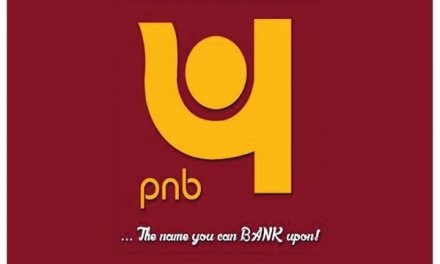Unlock 2.0 guidelines: The Government on Monday issued fresh guidelines for the next stage of unlocking. The new guidelines will come in effect on Wednesday, July 1, and extend till the end of the month.
Announcing the guidelines, the govt maintained that there shall remain strict enforcement of lockdown in the containment zones. “The new guidelines are based on feedback received from states and UTs, and extensive consultations held with related central ministries and department,” the government said in a statement.
Lockdown will continue in containment zones until July 31. The government restricted the movement of individuals from 10 pm to 5 am and added that not more than five people would be allowed in a shop.
In areas outside Containment Zones, all activities will be permitted, except the following:
(i) Schools, colleges, educational and coaching institutions will remain closed till July 31. Online/ distance learning shall continue to be permitted and shall be encouraged.
Training institutions of the Central and State Governments will be allowed to function from 15 July 2020, for which Standard Operating Procedure (SOP) will be issued by the Department of Personnel & Training (DoPT).
(ii) International air travel of passengers, except as permitted by MHA.
(iii) Metro Rail services to remain shut until further notice.
(iv) Cinema halls, gymnasiums, swimming pools, entertainment parks, theatres, bars, auditoriums, assembly halls, and similar places.
(v) Social/ political/ sports/ entertainment/academic/ cultural/ religious functions and other large congregations.
Dates for re-starting the above activities may be decided separately and necessary.
SOPs shall be issued for ensuring social distancing and to contain the spread of COVID-l9. Domestic nights and passenger trains have already been allowed in a limited manner. Their operations will be further expanded in a calibrated manner.
Night curfew
Movement of individuals shall remain strictly prohibited between 10.00 pm to 5.00 am throughout the country, except for essential activities, including operation of industrial units in multiple shins, movement of persons and goods on National and State Highways, loading and unloading of cargo and travel of persons to their destinations after disembarking from buses, trains, and airplanes. Local authorities shall issue orders, in the entire area of their jurisdiction under appropriate provisions of the law such as under Section 144 of CrPC, and ensure strict compliance.
National Directives for COVID-19 Management
National Directives for COVlD-l9 Management, as specified in Annexure I, shall continue to be followed throughout the country.
Lockdown limited to Containment Zones
(i) Lockdown shall continue to remain in force in the Containment Zones till 31 July 2020.
(ii) Lockdown shall continue to be implemented strictly in the Containment Zones till 31 July 2020. Containment Zones are required to be carefully demarcated by the State/ UT Governments with a view to containing the spread of COVID-19, after taking into consideration the guidelines issued by the Ministry of Health & Family Welfare (MOHFW). Within the containment zones, strict perimeter control shall be maintained and only essential activities allowed. These Containment Zones will be notified on the websites of the respective District Collectors and by the States/UTs and information will also be shared with MOHFW.
(iii) In the containment zones, strict perimeter control shall be maintained and only essential activities allowed.
(iv) Activities in the Containment Zones shall be monitored strictly by the State/UT authorities, and the guidelines relating to containment measures in these zones shall be strictly implemented.
(v) MOHFW will monitor the proper delineation of Containment Zones and the implementation of the containment measures.
Protection for vulnerable persons
Vulnerable persons, i.e., persons above 65 years of age, persons with co-morbidities, pregnant women, and children below the age of 10 years, are advised to stay at home, except for meeting essential requirements and for health purposes.
Movement of persons with SOPs
Movement by passenger trains and Shramik special trains; domestic passenger air travel; the movement of Indian Nationals stranded outside the country and of specified persons to travel abroad; evacuation of foreign nationals; and sign-on and sign-off of Indian seafarers will continue to be regulated as per SOPs issued.
States to decide on activities outside Containment Zones
States and UTs, based on their assessment of the situation, may prohibit certain activities outside the Containment zones, or impose such restrictions as deemed necessary. However, there shall be no restriction on inter-State and intra-State movement of persons and goods. No separate permission/ approval/ e-permit will be required for such movements.
Use of Aarogya Setu
(i) Aarogya Setu enables early identification of potential risk of infection, and thus acts as a shield for individuals and the community.
(ii) With a view to ensuring safety in offices and workplaces, employers on the best effort basis should ensure that Aarogya Setu is installed by all employees having compatible mobile phones.
(iii) District authorities may advise individuals to install the Aarogya Setu application on compatible mobile phones and regularly update their health slams on the app. This will facilitate the timely provision of medical attention to those individuals who are at risk.
Also Read: From Tik Tok, UC Browser to Baidu Map, 59 Chinese Apps Banned By India: See the complete list











